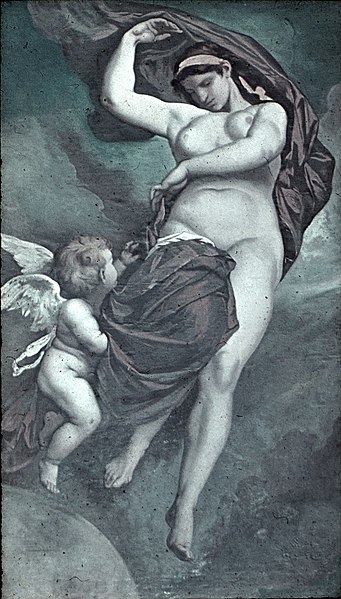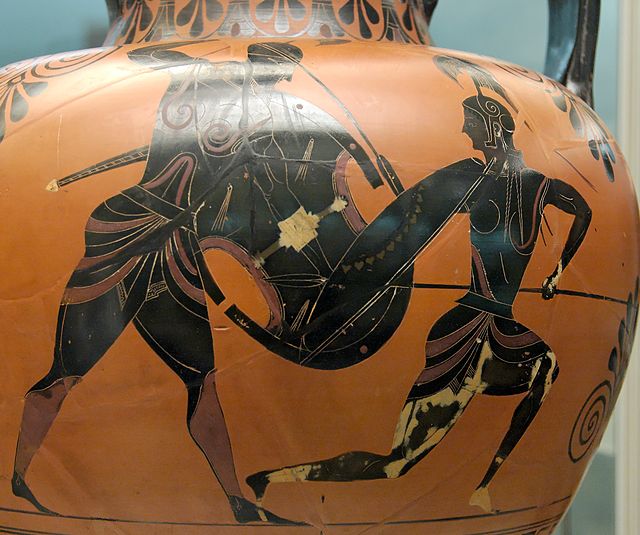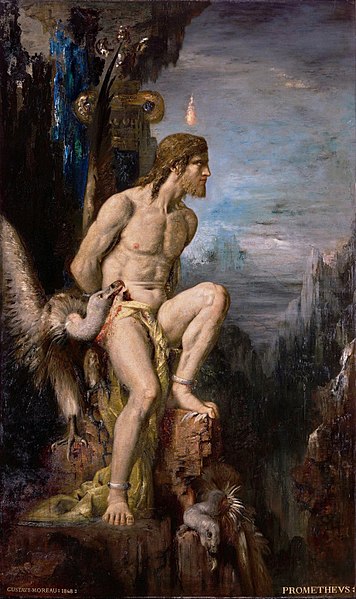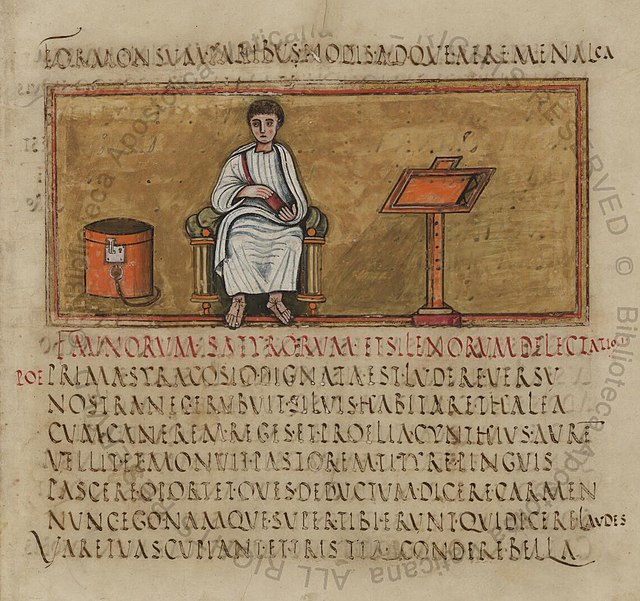Gaia
Videos
Page
In Greek mythology, Gaia, also spelled Gaea, is the personification of Earth. Gaia is the ancestral mother—sometimes parthenogenic—of all life. She is the mother of Uranus (Sky), from whose sexual union she bore the Titans, the Cyclopes, and the Giants; as well as of Pontus (Sea), from whose union she bore the primordial sea gods. Her equivalent in the Roman pantheon was Terra.

Gaia pleads Athena to spare her son, Gigantomachy frieze, Pergamon Altar, Pergamon museum, Berlin.

Gaea by Anselm Feuerbach, 1875 ceiling painting, Academy of Fine Arts Vienna.

Gaia hands her newborn, Erichthonius, to Athena as Hephaestus watches – an Attic red-figure stamnos, 470–460 BC

Gaia entrusts Erichthonios to Athena. From left to right: Hephaestus, Athena, Erichthonios, Gaia, Aphrodite. Said to come from the temple of Hephaestus in Athens. Pentelic marble. 100-150 AD. Louvre
Greek mythology
Videos
Page
Greek mythology is the body of myths originally told by the ancient Greeks, and a genre of ancient Greek folklore, today absorbed alongside Roman mythology into the broader designation of classical mythology. These stories concern the ancient Greek religion's view of the origin and nature of the world; the lives and activities of deities, heroes, and mythological creatures; and the origins and significance of the ancient Greeks' cult and ritual practices. Modern scholars study the myths to shed light on the religious and political institutions of ancient Greece, and to better understand the nature of myth-making itself.

Achilles and Penthesileia by Exekias, c. 540 BC, British Museum, London

Prometheus (1868 by Gustave Moreau). The myth of Prometheus first was attested by Hesiod and then constituted the basis for a tragic trilogy of plays, possibly by Aeschylus, consisting of Prometheus Bound, Prometheus Unbound, and Prometheus Pyrphoros.

The Roman poet Virgil, here depicted in the fifth-century manuscript, the Vergilius Romanus, preserved details of Greek mythology in many of his writings.

Phaedra with an attendant, probably her nurse, a fresco from Pompeii, c. 60 – c. 20 BC